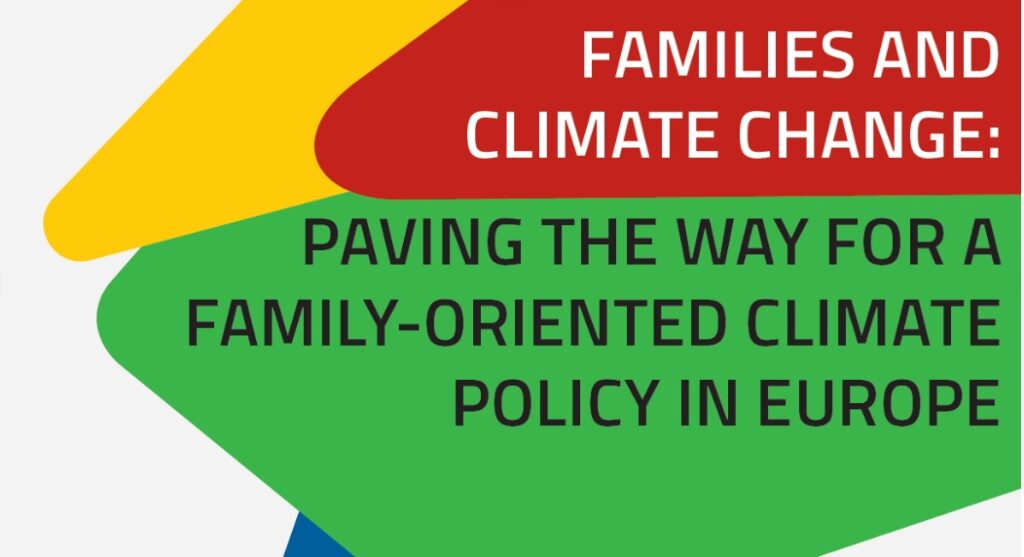In Europe too many children with disabilities are excluded from participating in mainstream education. Now is the time to make a cultural, political and practical transformation of the education systems to accommodate the different requirements and identities of all students including of those with disabilities and make a step forward in the realisation of the UNCRPD (United Nations Convention on the Rights of Persons with Disabilities). With the S.H.I.F.T. recommendations by the COFACE Disability Platform for the rights of persons with disabilities and their families together with a strong political will and partnerships in the EU and its Member States, the right to education for all can finally become a reality.
Despite the commitment of the EU and all its Member States to implementing the UNCRPD in 2010, barriers remain in most aspects of education for children with disabilities. All across Europe these children are denied their right to education, many do not access education, many do in special schools, segregated from their peers. The COFACE Disability Platform urges the EU and national governments not to waste more time and take on the legal obligation they have committed themselves to years ago.
The inclusion of children with disabilities in education is further key to implement principle 1 of the European Pillar of Social Rights and Sustainable Development Goal 4 (SDG4) to “ensure inclusive and equitable quality education and promote lifelong learning opportunities for all.” To foster a swift implementation, the COFACE Disability Platform has published specific recommendations and tools following a webinar hosted today: “Back-to-school: Triggering a meaningful shift towards inclusive education”. The S.H.I.F.T. guide focusing on different areas (Support, Human Rights, Independence, Families, and society Transition) was used as the starting point for discussing a holistic change towards inclusive education systems which cater for, are accessible to, and support every child. On the 14th September, COFACE Families Europe hosted a webinar to compare different realities in Europe and to discuss the recommendations with stakeholders representing civil society, trade unions, education ministries, the the European Agency for Special Needs and Inclusive Education and with the European Commission.
Chantal Bruno, co-chair of the COFACE Disability platform: “Inclusive systems provide a better quality education for all children and are instrumental in changing discriminatory attitudes. Schools are the first setting where children build their relationships with the world outside their families, and where they develop social relationships and interactions. Therefore, being part of mainstream education is more than just gaining knowledge. It is about becoming a valuable member of society and being socially included which is why a significant shift in education in Europe is urgently required.”
Sylvie Hirtz, co-chair of the COFACE Disability platform: “The EU needs to take up its responsibility and develop a clear policy framework and relevant legislation promoting inclusive education, in cooperation with all relevant stakeholders. Also, inclusive education must be at the core of the EU actions towards disability and child rights, including the new Disability Strategy 2020-2030, the upcoming European Child Guarantee and Child Rights Strategy.”
The webinar with its written recommendations is only one step towards different actions in society and new partnerships. The COVID-19 pandemic has worsened the structural exclusion of children and adults with disabilities from education. In many countries, schools were closed and distance learning became the norm, increasing barriers and discrimination. However, the pandemic does represent an opportunity for national governments to rethink and reorganise education, and to finally implement inclusive education for persons with special needs and for all marginalized groups.
Together with all relevant stakeholders in society inclusive education can soon become a reality. Until then, the COFACE Disability Platform will continue to raise its voice for inclusion and build more inclusive future for all children.
_ _ _
ENDS
For more information:
- Full recommendations on inclusive education
- Summary presentation of the recommendations (additional presentations from the webinar will be provided at a later stage on the webinar webpage)
- Full speech of the co-chairs of the COFACE Disability Platform (in French)
or contact Isabell Wutz, Communication Officer: iwutz@coface-eu.org or Irene Bertana, Policy and Advocacy Officer: ibertana@coface-eu.org





